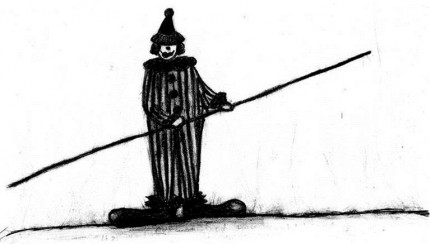Young Insight

This is Impossible – So Let’s Get Started.
Below is an excerpt from a student’s exploration of the book, ‘Clunk & Jam’, for an English assignment. Thank you RB for choosing Clunk & Jam to review and the personal insights you’ve written about and kindly (bravely) shared …
‘The Super Hero series stems from Browne always having had a strong social conscience and being very sensitive – particularly to the suffering of others, or bad things happening. There was a part of her that wanted to save the world (the child/teenage) – knowing full well she couldn’t (the adult self). “I was one of those kids who felt really responsible for people around me and what was happening. And then I had experiences where no-one showed up for me, so I lost faith in the notion of real life Super Heroes.”
When Janine watched ‘The Dark Knight’, because just like the bulk of society, she loved watching Super Hero movies and imagining they exist, that there was a pure being always there to save us from evil, unable to be corrupted by temptation. But she was devastated that Batman gave up in that particular movie. He reached a point of such despair that he could no longer focus on the good. I believe that a lot of young boys/men in particular (but also girls/women) feel that angst about not being able to save the world, to fix everything that’s broken but finding they are unable to, thus beginning the battle that comes from within themselves and that can end terribly.
I believe that Browne’s ability to relate to this concept is what created the inspiration for excerpts from both The BOy and The Superhero series. And while Browne herself writing about these issues does not offer a solution, I think we should be talking and thinking about this more than we do and so her pieces are extremely valuable to this process.
The superhero series emphasizes less on impossible acts of heroism and more on people brave enough to make small changes that can contribute to society, even in small doses. Browne speaks of times when we all felt we could take on the world, the times that we looked up to our parents and other authority figures, how in our child-like eyes, they were the heroes of this world, protecting us from evil, unable to be corrupted. But when we grow up and reach our teenage years, we start to lose faith in ourselves, and feel that we are too ordinary to be extra-ordinary even if our parents were just ‘plain’ people with no magical powers and when we reach that point, it when we become stuck, ready to give up on ourselves, to hang up our heroes cape. But at the same time we hear of these stories of ordinary people facing impossible challenges and instead of being scared, these small acts of bravery can be ‘heroic’ and that the ability to be brave in humane and impossible situations is more heroic than anything “super-fied” because it ignites a sense of hope in our lives.
The poem ‘Heroic friendship’ focuses on changing the current view of bravery and heroism, commenting on how hard it is to do anything that involves opening up, as it makes you vulnerable to “be alone” because being alone, with no one to stop you from those thoughts can be a dangerous but brave thing to do. That to be heroic in your own life, or in assisting others when they need it, knowing perfectly well when you are needed and how to be there for someone is a more reasonable to attempt than to be attempting impossible feats of ‘heroism’.
Read full assignment here.
Thanks RB x
